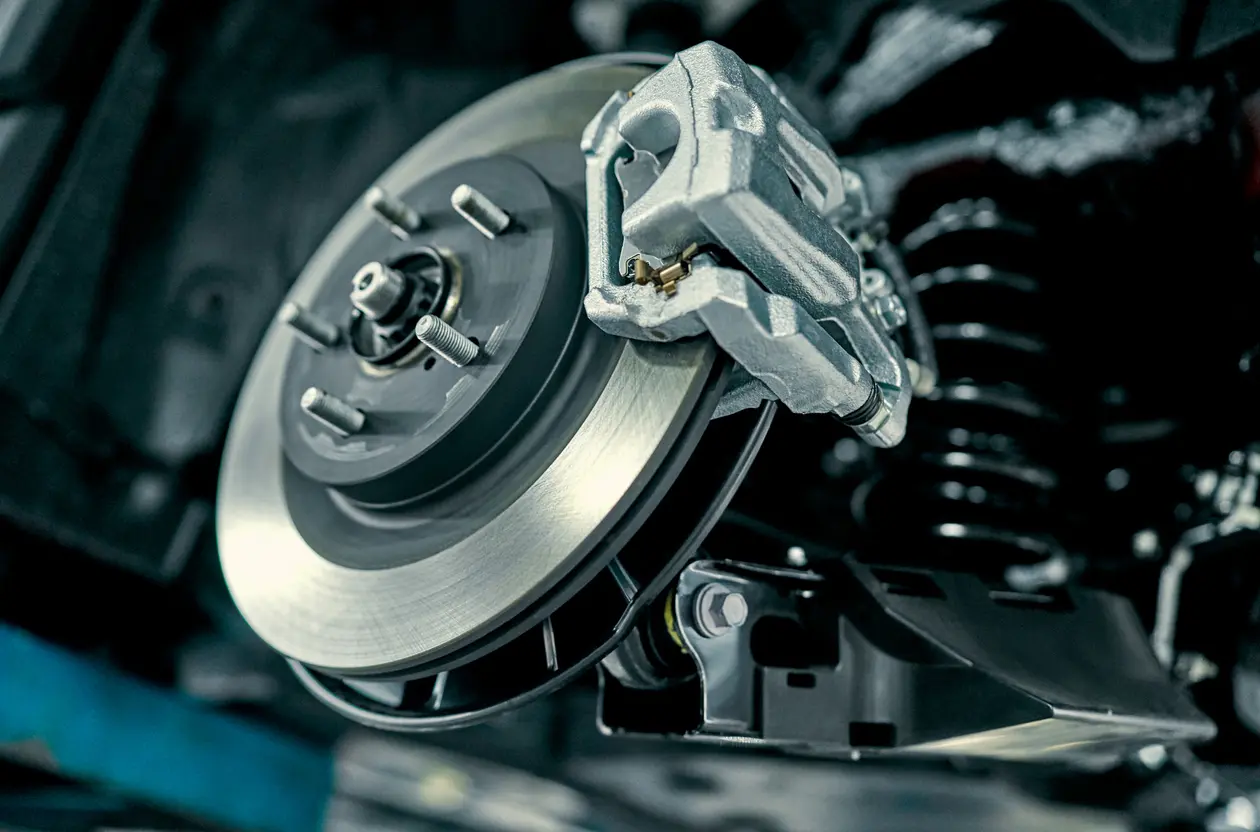EN 16207 Brake Block Hardness Testing
The European Standard EN 16207 specifies the requirements and methods for the determination of the hardness of brake blocks used in railway transport. This standard ensures that brake block materials meet specific mechanical properties, which are critical for ensuring passenger safety and efficient operation.
In a typical testing procedure, brake blocks undergo various stages to ensure they comply with EN 16207 guidelines. The testing process begins with the careful selection of appropriate specimens from the batch being tested. These specimens must be representative of the entire production lot to provide accurate results.
Once selected, the specimens are prepared for hardness testing by ensuring they are free of any imperfections or flaws that could affect the test results. The preparation process involves cleaning and possibly polishing the surface of the specimen to ensure a consistent measurement point.
The testing itself is conducted using specialized equipment designed to apply a standard load in accordance with EN 16207 requirements. This ensures uniformity across all samples tested, which is crucial for accurate results. The hardness value is then measured at multiple points on the specimen and averaged to provide an overall measurement that represents the material properties of the brake block.
The testing process also includes a detailed examination of the mechanical properties of the brake blocks, including their resistance to wear and tear under various conditions. This information is critical for quality managers and compliance officers to ensure that the products they procure or manufacture meet all safety standards.
Understanding the importance of this test goes beyond mere compliance; it ensures that railway systems operate safely and efficiently. For R&D engineers, this testing process provides valuable data on material performance under real-world conditions, allowing for continuous improvement in product design.
The acceptance criteria defined by EN 16207 are stringent to ensure high standards of safety and reliability. Compliance with these criteria is essential not only for railway transport but also for other transportation sectors that rely heavily on reliable braking systems. By adhering to this standard, manufacturers can demonstrate their commitment to quality and passenger safety.
- Ensures consistent material properties across all brake blocks produced.
- Promotes the use of high-quality materials in railway transport.
- Aids in the identification of potential issues before they lead to accidents or malfunctions.
- Facilitates continuous improvement and innovation in braking technology.
Why It Matters
The importance of EN 16207 brake block hardness testing cannot be overstated. In the context of railway transport, the reliability and safety of braking systems are paramount. Any failure in these systems can lead to catastrophic consequences, putting both passengers and personnel at risk.
Hardness testing ensures that brake blocks have the necessary mechanical properties to withstand the stress they will encounter during operation. This includes resistance to wear and tear, which is critical for maintaining consistent braking performance over time. By adhering to EN 16207 standards, manufacturers can ensure their products meet the highest safety and quality benchmarks.
From a broader perspective, compliance with this standard contributes to the overall safety and efficiency of railway transport systems. It helps in reducing maintenance costs by identifying potential issues early on, thereby extending the lifespan of brake blocks. This not only enhances operational reliability but also supports sustainable practices within the industry.
For quality managers and procurement officers, compliance with EN 16207 is a key factor when evaluating suppliers and selecting materials for use in railway systems. It provides a clear framework for assessing the quality of brake blocks and ensures that only high-quality products are used in critical applications.
In summary, EN 16207 brake block hardness testing is essential for maintaining the highest standards of safety and reliability in railway transport. By ensuring that brake blocks meet specific mechanical property requirements, this standard plays a vital role in safeguarding both passengers and personnel while promoting efficient and sustainable operations.
The results of this testing are not just numbers; they represent lives saved and systems that operate reliably under demanding conditions. The commitment to compliance with EN 16207 reflects a dedication to excellence and safety, which is crucial in the railway industry.
Eurolab Advantages
At Eurolab, we specialize in providing comprehensive testing services that meet the highest international standards. Our expertise in brake block hardness testing ensures that you receive accurate and reliable results every time.
We have state-of-the-art equipment designed specifically for this type of testing, allowing us to provide consistent and precise measurements. Our skilled technicians are trained to follow EN 16207 guidelines meticulously, ensuring that all tests are conducted according to the standard's requirements.
Our facility is equipped with advanced laboratories that can handle a wide range of specimens, from small samples for preliminary testing to larger pieces needed for full-scale validation. This versatility allows us to provide comprehensive testing services tailored to your specific needs.
We also offer fast turnaround times without compromising on the quality of our results. Our commitment to customer satisfaction means that we strive to deliver timely reports and recommendations, ensuring that you can make informed decisions promptly.
In addition to our technical expertise, Eurolab provides a supportive environment for your testing needs. We work closely with clients to understand their unique requirements and provide customized solutions that meet those demands. Our team of experts is always available to offer guidance and support throughout the entire testing process.
By choosing Eurolab for your brake block hardness testing, you can be confident in the quality of our services. We are dedicated to providing accurate, reliable results that exceed industry expectations. With our expertise and commitment to excellence, we ensure that every test conducted meets the highest standards set by EN 16207.





